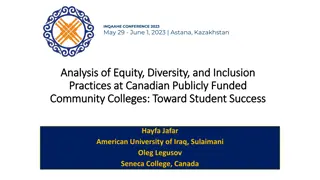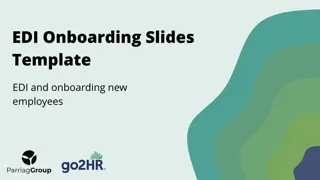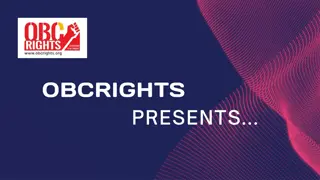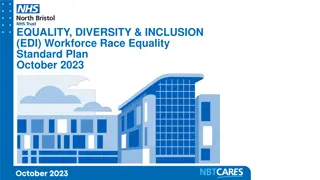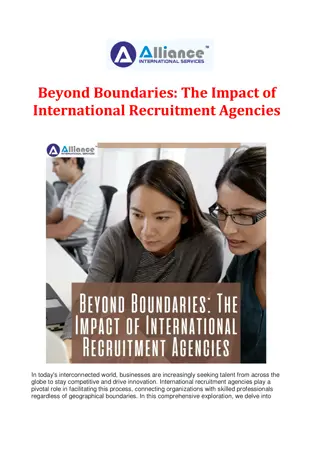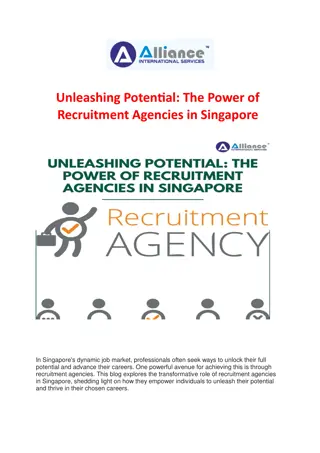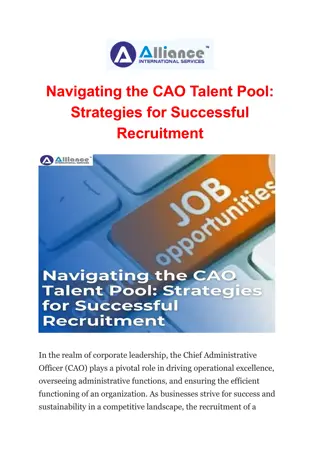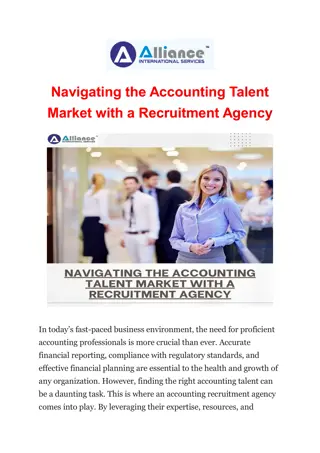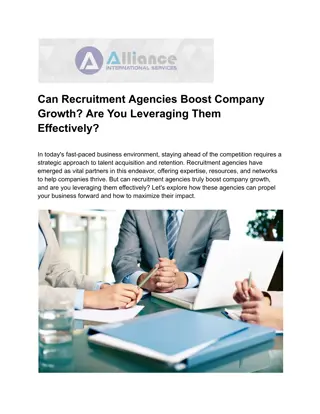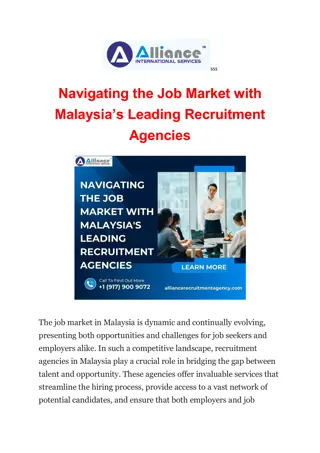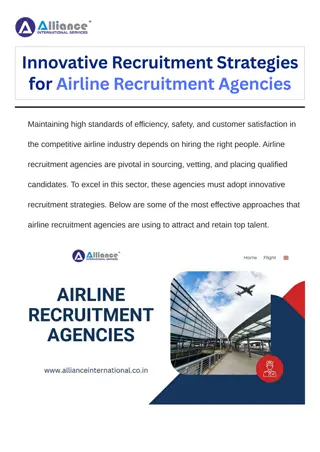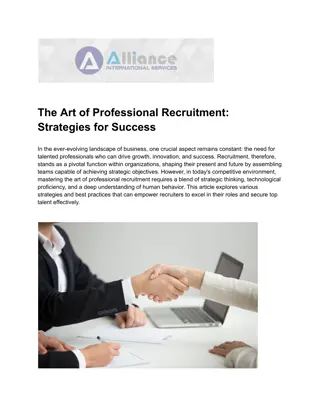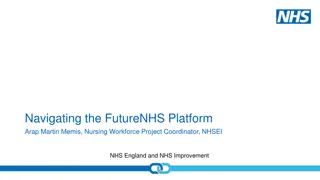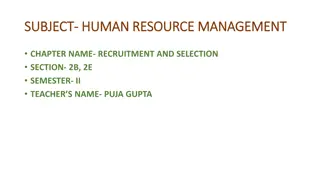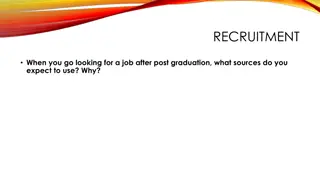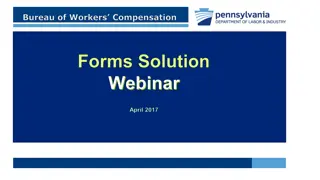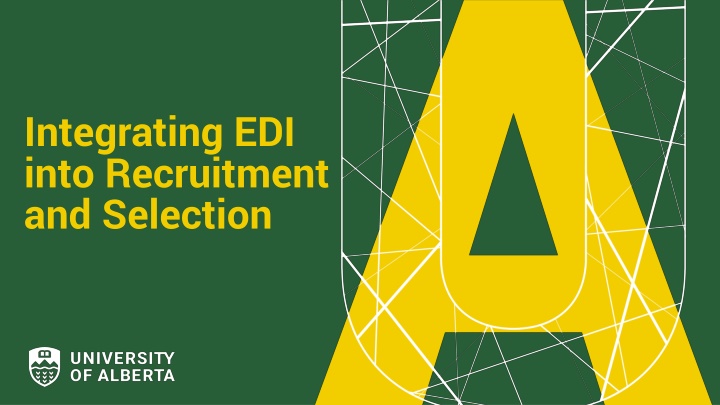
Strategies for Inclusive Recruitment and Selection Process
Enhance your recruitment and selection process by integrating Equity, Diversity, and Inclusion (EDI) principles. Explore strategies to reduce bias, promote diversity, and ensure fairness at every step, from job postings to interviews.
Download Presentation

Please find below an Image/Link to download the presentation.
The content on the website is provided AS IS for your information and personal use only. It may not be sold, licensed, or shared on other websites without obtaining consent from the author. If you encounter any issues during the download, it is possible that the publisher has removed the file from their server.
You are allowed to download the files provided on this website for personal or commercial use, subject to the condition that they are used lawfully. All files are the property of their respective owners.
The content on the website is provided AS IS for your information and personal use only. It may not be sold, licensed, or shared on other websites without obtaining consent from the author.
E N D
Presentation Transcript
Integrating EDI into Recruitment and Selection
Diversity is a FACT Inclusion is a PRACTICE Equity and justice is the GOAL
Job postings Who are we looking for? What are the actual minimum requirements for the job? Are we willing to consider non-traditional backgrounds? Use software to remove bias (e.g. Textio, Datapeople, SeekOut, Greenhouse, Hired) Who is allowed to apply? Is the competition open or restricted? Is there a good reason why? Who sees the job posting? 3
The University Employment Equity Statement The University of Alberta is committed to an equitable, diverse, and inclusive workforce. We welcome applications from all qualified persons. We encourage women; First Nations, M tis and Inuit persons; members of visible minority groups; persons with disabilities; persons of any sexual orientation or gender identity and expression; and all those who may contribute to the further diversification of ideas and the University to apply.
The skills of EDI What are the consequences of errors? Are there consistent skills and attributes you look for in team members? Should EDI skills be included? What is meaningful in the role? e.g. Ensures that all assessment and evaluation activities are conducted with an acute lens of ethics and minimizing harm to students, vulnerable populations, and other stakeholders. What is the value of lived experience? 5
Screening We rely on our own judgement in screening, this makes us susceptible to bias Use checklists or rubrics to encourage consistency among the hiring team Screen independently and construct your reasoning for your top choices 6
Bad arguments They are not a good fit They are overqualified They are too young/old They won t understand the Canadian workplace What can this candidate add to our team and workplace? 7
Interviews Several biases or bad arguments can be at play Stereotyping Generalization Halo/Horn Contrast Conduct structured interviews Ensure the interviewers understand what skills you are looking for and what evidence of those skills might look like Include behaviour-descriptive interview questions 8
EDI-related interview questions 1.Tell us something specific you did in your last role to contribute to a positive and inclusive work environment. 1.How has EDI informed your assessment and evaluation projects, particularly in a post-secondary environment? a.What considerations did you make? b.How did you ensure risks to participants were mitigated? 1.Describe a time when you needed to work cooperatively with someone that did not share the same ideas as you. Describe the situation, the actions you took, and the outcome. 1.In your opinion, what challenges do you think people from historically underrepresented groups face when accessing our services? 1.What have you done in the past to support staff in navigating conflict or differences of opinion? 1.Tell me about a time when including diverse perspectives positively impacted a project or initiative you were working on. 9
Candidate selection Build time into your selection process for a discussion about candidates Avoid discussing candidates until everyone is interviewed Choose your top candidate(s) independently Collectively determine appropriate questions for references Regroup after reference checks are completed to select your candidate 10
Making offers and negotiation Are bad arguments having an impact on the offer or the negotiation? Use consistent factors in determining the salary you offer. Stick to the skills and competencies required How do we react to people who want to negotiate salary? Gender biases are deeply entrenched in salary negotiations 11
Questions? 12


